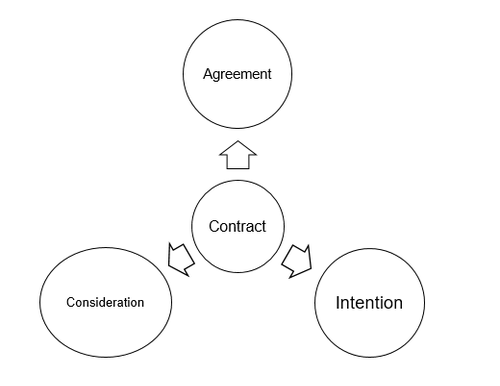Validity of Contracts
3. Validity of Contracts ****
3.1 Three essential elements of a contract
There must be an agreement which is usually evidenced by offer and acceptance.
The agreement must be supported by consideration (something of value) given by one party to the other.
The parties must have an intention to createv legal relations.

3.2 Validity factors
3.2.1 void, voidable or unenforceable contracts
Even where a contract is attended all the three elements, it may not necessarily lend itself to enforceability or validity if it falls short of genuine consent or other overriding requirement of the law.
? Where a contract is of no legal effect, it is void.
? Where a contract may be rendered void at the instance of the injured party, it is a voidable contract.
? An unenforceable contract is one that is not void, or is otherwise valid, but for want of some formal requirement of law, cannot be given effect the court.
3.2.2 Vitiating factors
? Legal Capacity. Some persons have restricted capacity. Minors cannot enter into contracts for goods other than necessities. Those who lack mental capacity or who were intoxicated can avoid contracts on some occasions.
? Form/Formal requirement. Some contracts are required to be made in a particular form.
? Genuine consent. A mistake or misrepresentation made by one party may affect the validity of a contract.
? Legality. The courts will not enforce a contract that is illegal or contrary to public policy.
相關(guān)試聽(tīng) 更多>